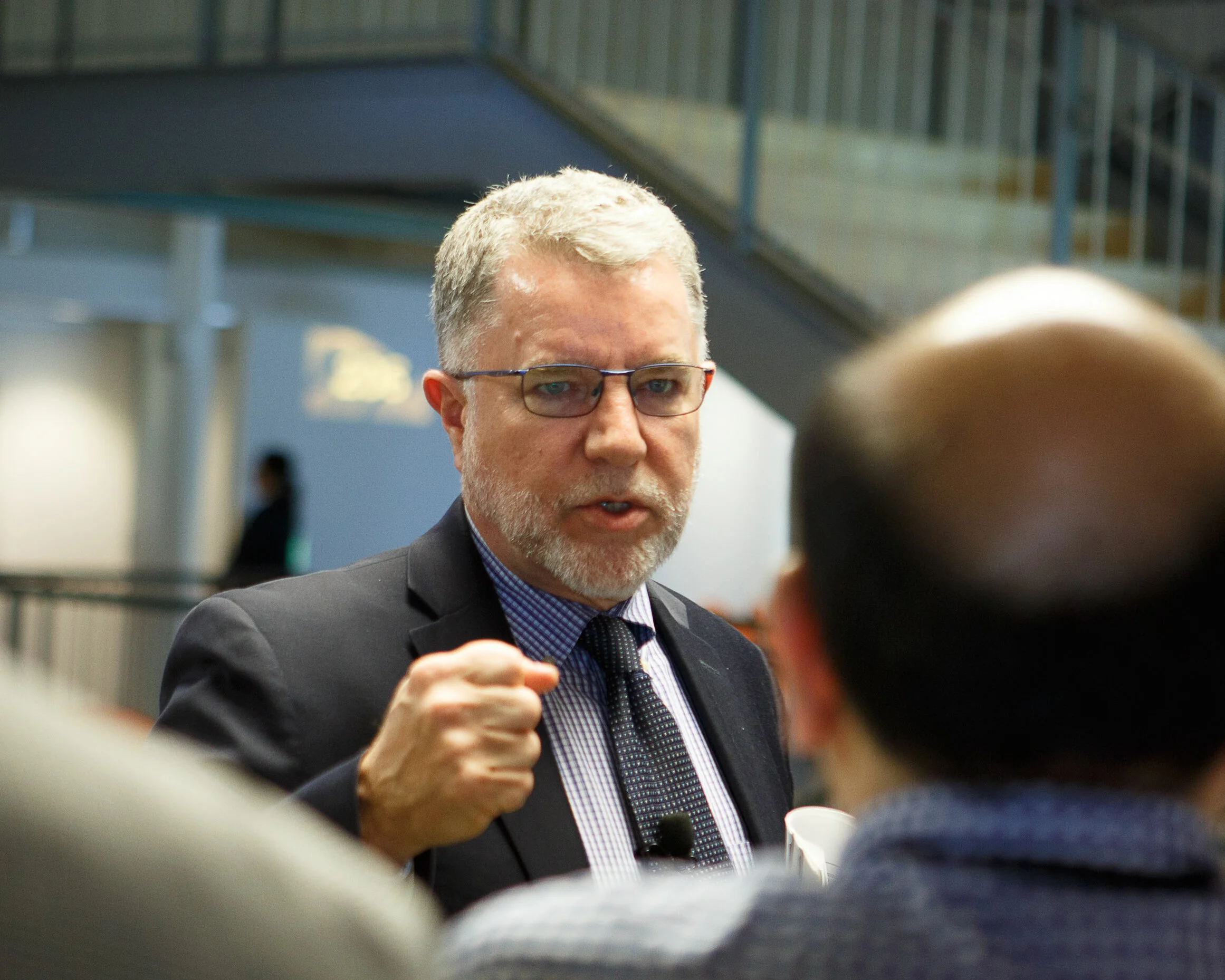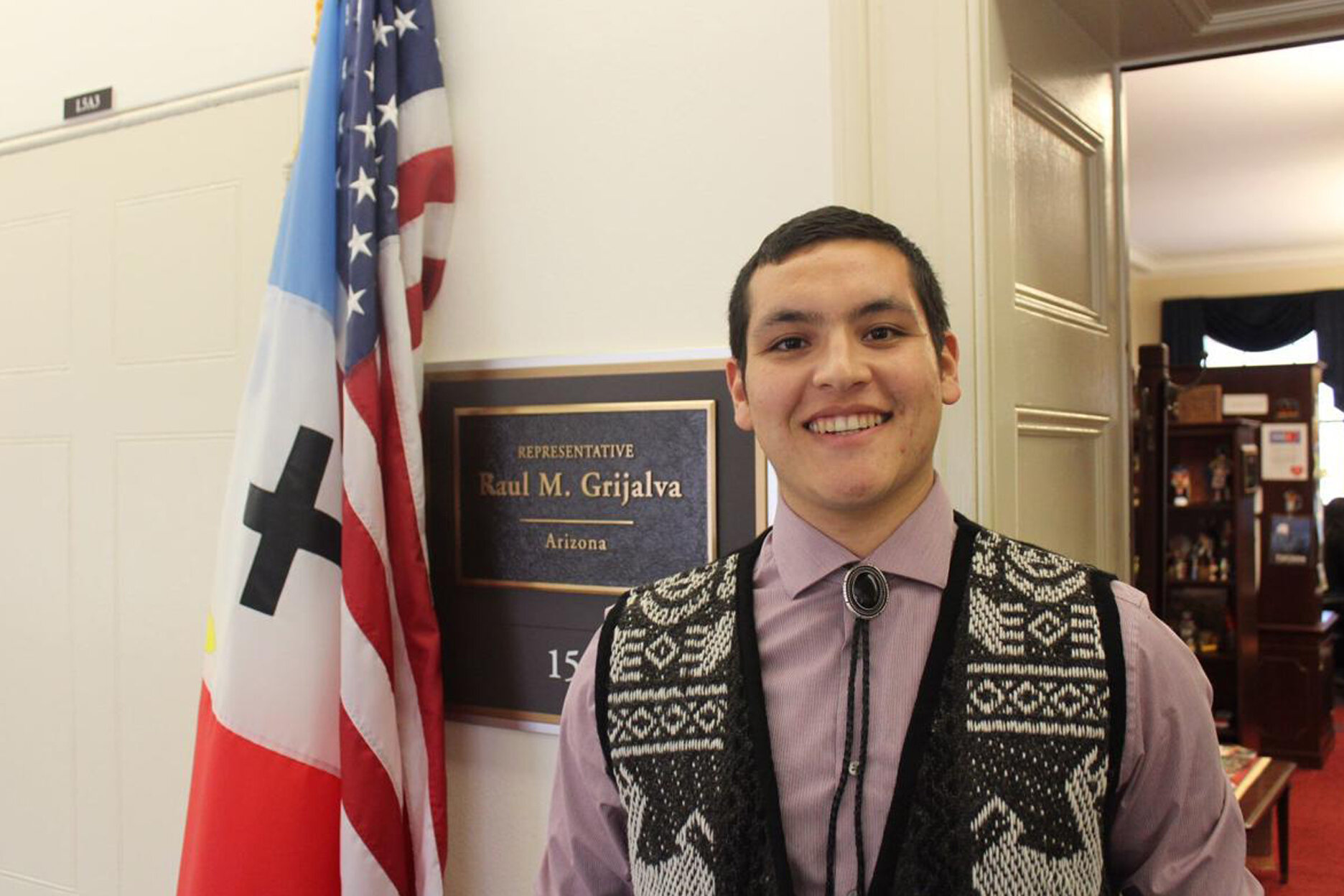Combating Systemic Racism From City Hall
A conversation with Dr. Karilyn Crockett, Chief of Equity for the City of Boston, about her new role; what she believes can be accomplished using the platform, power and influence of city government and the mayoral bully pulpit; and why she thinks now is a defining moment for racial justice both locally and nationally.
Shifting the Shape of U.S. Elections: The Lincoln Project
The creators of The Lincoln Project - former Republican campaign managers and consultants who want to build a new balanced and fiscally conservative Republican party - are creating the hardest hitting up-to-the-minute ads designed to provoke Trump’s ego and Wake Up those who voted for him.
Will You Roll Up Your Sleeve?
Matt Nathan, former Surgeon General of the Navy, discusses the COVID-19 vaccination roll-out and the choices that many people will be faced with.
Social Impact Spotlight on Professor James Honan
We caught up with James Honan, Senior Lecturer on Education at Harvard Graduate School of Education and faculty member with the Center for Public Leadership at the Harvard Kennedy School, for this installment of the Social Impact Review Spotlight.
Think Outside the Building: How Advanced Leaders Can Change the World One Smart Innovation at a Time
Professor Rosabeth Kanter, in her book, counsels that today's challenges - climate change, COVID-19, systemic racism, economic inequality - require a new paradigm of thinking to upend the status quo. “To think outside the building” is a call to action for bold advanced leaders with the mission to tackle the world’s biggest problems when we need social, economic, and environmental solutions more than ever.
Embracing the Economics of Circularity
Sustainable, regenerative, and circular business models are not simply an ethical choice, it is the next frontier of innovation and growth. Tze Ni Yeoh discusses what is the circular economy and how can businesses benefit from it.
COVID’s New Leadership Challenge
Professor Joseph Nye discusses how under the influence of the information revolution and globalization, world politics has changed in a way that means that even if the United States remains the largest power, we cannot achieve many of our international goals acting alone.
Professor Howard Gardner Discusses His Memoir: A Synthesizing Mind
A conversation with Howard Gardner, the John H. and Elizabeth A. Hobbs Research Professor of Cognition and Education at the Harvard Graduate School of Education, who has had a distinguished career as an innovative educator and psychologist.
Making a Case for Universal Civic Duty Voting
Miles Rapoport discusses how it's important to remember that our election system has two critical and longstanding problems that are barriers to achieving full and inclusive representation: consistently low voter participation and an electorate still deeply unreflective of our country’s increasingly diverse population. The solution is straightforward - make voting a universal civic duty.
Upholding the Social Contract in Latin America and the Caribbean
COVID-19 is a global humanitarian crisis that threatens both our lives and our livelihoods. The outlook is especially severe for regions like Latin America, where economies are characterized by high levels of inequality and informality. Andrés Cadena discusses how an upgraded conditional cash transfer program can help Latin America so it does not lose a decade of socioeconomic progress.
U.S. K-12 Education and Healthcare Competitiveness: Time for a New Approach?
Despite numerous, well-intentioned efforts to close the K-12 education and healthcare gaps in America, we have barely seen any progress. Why is this? Tom Hedrick outlines the problems and gives his thoughts on what we should do.
Building Economic Resilience for Women in a Post-COVID-19 World
In order to overcome the disproportionate economic devastation that COVID-19 has had and will continue to have on millions of women around the world, Maria Bobenrieth, Aditi Mohapatra, and Marissa Wesely discuss ways we can achieve women’s economic empowerment and advance economic justice and rights.
One in Five Tree Species is on the Brink of Extinction
There are a little over 60,000 individual species of trees in the world. More than 11,000 of these are at risk of extinction and 3,300 are critically endangered - meaning that without intervention, they will become extinct. Doris Honold discusses how U.K.-based Botanic Gardens Conservation International and their Tree Conservation Fund are working with communities to save trees from extinction.
Supporting Indigenous Communities’ Resilience in the Face of COVID-19
When the COVID-19 pandemic began spreading globally in early 2020, Victor Lopez-Carmen knew that it represented an existential threat to Indigenous communities. As one of the only Native American student currently at Harvard Medical School and Co-Chair of the U.N. Global Indigenous Youth Caucus, he rallied his networks and launched the COVID-19 Indigenous Health Partnership to leverage Harvard Medical School expertise in support of seven Indigenous nations around the world.














